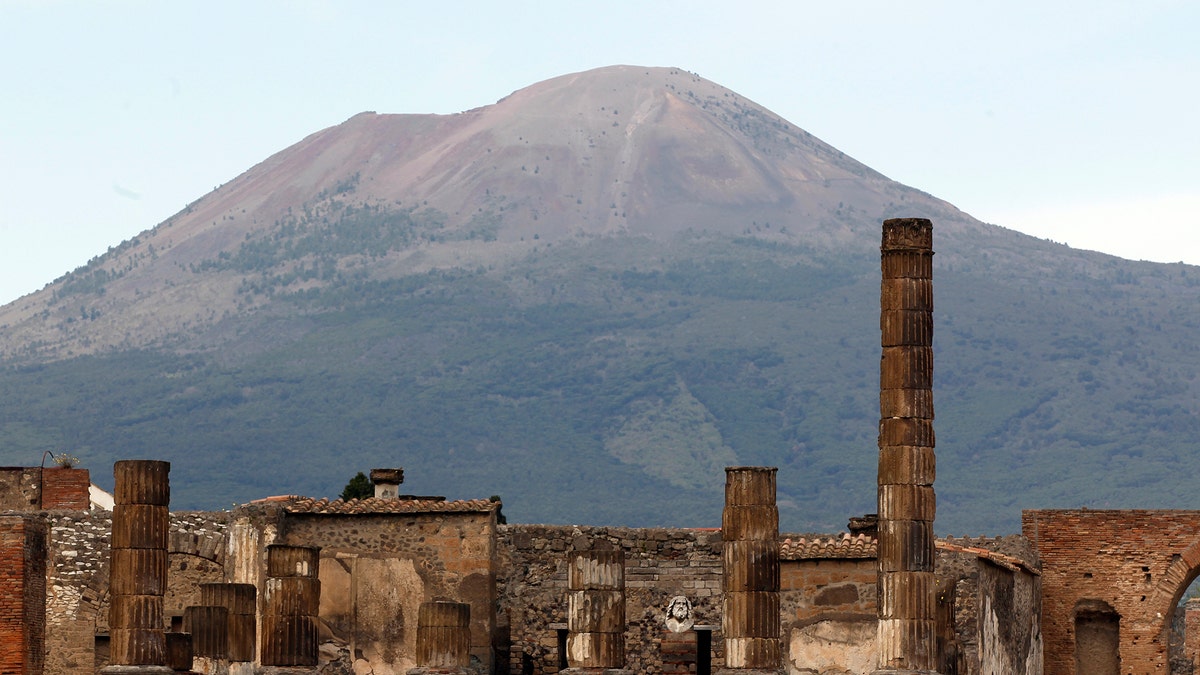
File photo: A partial view of the ancient archaeological site of Pompeii is pictured in front of Mount Vesuvius April 17, 2014. (Credit: REUTERS/Ciro de Luca)
Archaeologists are calling an ancient Roman neighborhood discovered in southeast France a "real little Pompeii" dotted with well-preserved mosaics, shops, and noble homes. "We're unbelievably lucky. This is undoubtedly the most exceptional excavation of a Roman site in 40 or 50 years," lead digger Benjamin Clement tells AFP.
The ruins in Saint-Colombe on the outskirts of Vienne, a city known for its Roman vestiges, were found on a lot set for a housing development.
They cover 75,000 square feet and represent an "exceptional find," per the French Culture Ministry. Dating back to the first century AD, the neighborhood was built around what appears to be the largest market square of its kind ever found in France, with homes; shops for food, wine, and metalworks; and a hydraulic network for cleaning and draining, per the New York Times.
Another house boasts a stunning mosaic of Thalia, the muse of comedy, being kidnapped by the god Pan. A large complex may have been home to a philosophy school.
The quarter was thought to have been inhabited for about 300 years before fires in the second and third centuries left it abandoned. In fact, fire helped preserve the ruins by baking wood beams and bricks, oxidizing metal doors, and essentially freezing artifacts in place, much like volcanic ash encased the city of Pompeii in AD79.
It is "an instant photograph of life" at the time, Clement says, per the Times. Work to excavate the site, begun in April, will extend through the end of the year.
The mosaics are being removed for restoration for viewing at Vienne's antiquity museum in 2019. (A bit of cave dirt changed archaeology.)
This article originally appeared on Newser: 'Exceptional' Roman Site Dug Up in France